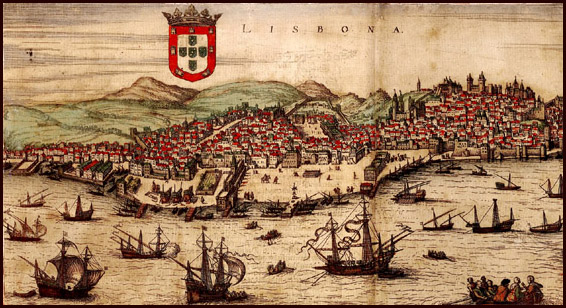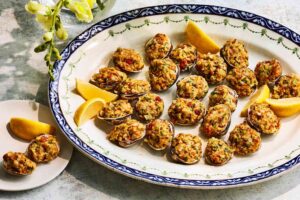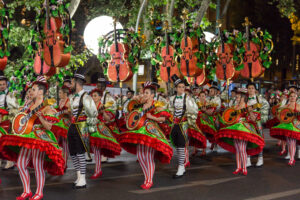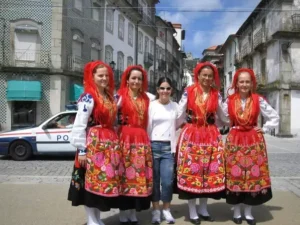The culture of Portugal is a complex tapestry made from many years of history, exploration, and different influences. Portugal’s cultural history, from its early days to now, shows how its location at the hub of Europe, Africa, and the Americas has shaped its identity. Here is a quick look at how Portuguese culture has changed over time.
Influences Early on
Portugal has a history that goes back to prehistoric times. People from many different time periods lived in the area, such as the Celts and the Iberians. When the Romans came to Portugal in the 2nd century BCE, they changed the language, architecture, and way cities were planned. Roman architecture and ruins can still be seen in Portugal’s old cities and towns.
Following the fall of the Roman Empire in the 5th century CE, the Germanic Visigoths came to the area. Even though their influence was short, it helped shape Portuguese identity in the beginning. After the Visigoths came the Moors, who came in the eighth century. It was the Muslim Moors who had a big impact on Portuguese culture, especially in the fields of architecture, farming, and science.
The Making of Portugal
When Portugal became the Kingdom of Portugal in the 1100s, it was the start of a new era in its cultural history. When King Afonso I (Afonso Henriques) declared independence from the Kingdom of León in 1143, the country started to form a clear sense of who it was. Over the next few hundred years, Christian, Gothic, and Renaissance styles changed Portugal’s culture.
The Age of Discovery
The 15th and 16th centuries, which are sometimes called the “Age of Exploration,” were very important to the development of Portuguese culture. Portugal went on a lot of sea voyages that helped them build a huge empire that stretched across Africa, Asia, and South America. They did this because they were curious and wanted to trade. During this time, there was a lot of cultural exchange, and Portuguese art, food, and traditions began to include elements from other cultures.
Vasco da Gama and Ferdinand Magellan were two Portuguese explorers who helped set up trade routes around the world. During this time, many new things entered Portuguese culture, and traditions and customs from all over the world began to mix.
The Ages of Baroque and Enlightenment
During the 17th and 18th centuries, the Baroque style shaped art, music, and architecture in Portugal. Many churches and palaces in Portugal were built in the Baroque style, which is known for its grandeur and wealth. During this time, the country also had a cultural renaissance, with many great works of literature and art.
In the 1800s, the Enlightenment led to a shift toward rationalism and scientific progress. Intellectuals and reformers in Portugal started to focus on education and modernization, which helped build the country’s culture today.
The 1800s and early 1900s
Portugal went through a lot of political and social changes in the 1800s. For example, the monarchy was abolished and a republic was set up. During this time, literature and culture changed. Notable writers like Fernando Pessoa and José de Almada Negreiros contributed to Portuguese modernist literature.
There was a lot of political instability at the start of the 20th century. António de Oliveira Salazar led the Estado Novo to power. Even though the regime was very strict, there was a lot of cultural growth during that time, especially in music and literature.
These days Portugal
When the Estado Novo regime ended in 1974 with the Carnation Revolution, it was a big change in Portuguese culture. A democratic government was set up after the revolution, and there was a time of cultural and social renewal. Since then, Portugal has celebrated its rich history while also bringing in modern ideas.
There are both traditional and modern things in modern Portuguese culture. Fado music, which is sad and soulful, is still an important part of Brazilian culture. Portuguese food continues to honor its many influences. Dishes like bacalhau (salted cod) and pastéis de nata (custard tarts) are loved all over the world.
Portuguese literature and art have continued to do well, and many modern artists and writers are becoming known around the world. People come from all over the world to see Portugal’s cultural festivals, historical sites, and lively city life, which shows how charming and rich Portuguese culture is.
Conclusion
The culture of Portugal is a living, changing mix of old traditions and new ideas from today. Portugal’s cultural heritage tells us a lot about the country’s history and how it has affected the world, from its ancient roots to its times of exploration, artistic achievement, and modernization. By learning about Portuguese culture, you can better understand its unique traditions and how they have affected other cultures around the world.




